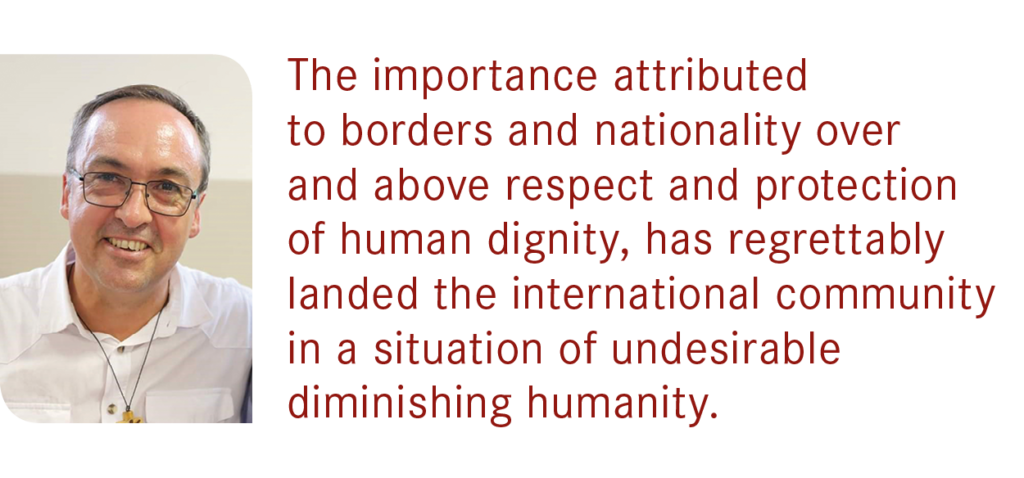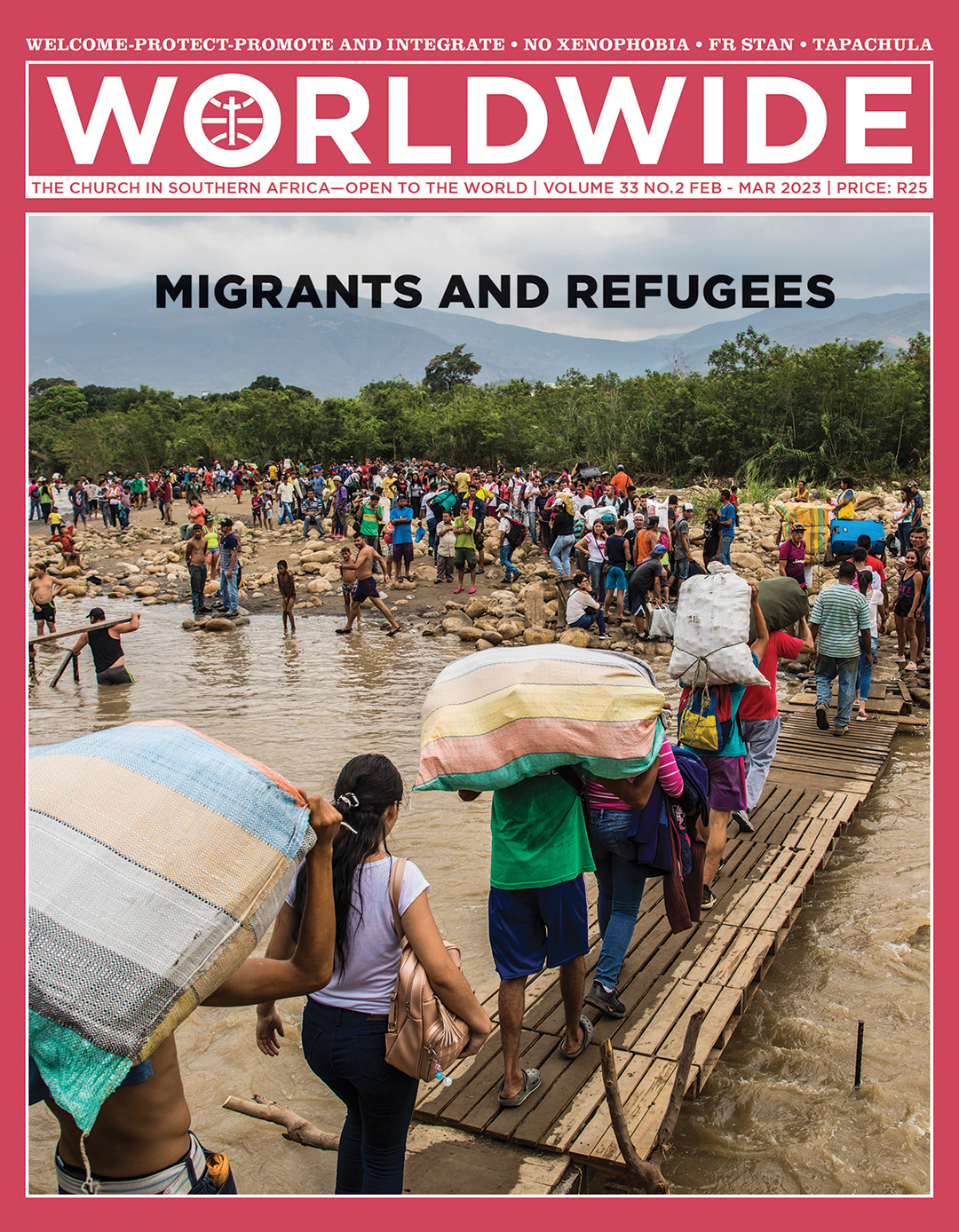Editorial

103 MILLION LIVES
BY Rafael Armada | EDITOR
MIGRATION IS a very complex and extended phenomenon among human beings worldwide. There are many reasons why a person leaves his/her home and moves to another place. The right to freedom of movement and residence is a fundamental human right (Universal Declaration of Human Rights of 1948, Article 13), and is also acknowledged by the Church, as Pope St John XXIII stated: “When there are just reasons in favour of it, anyone must be permitted to emigrate to other countries and take up residence there” (Pacem in Terris n. 25).
Once said, the truth of the matter is that the majority of the inhabitants of the world do not leave their place of origin. Only 3.6% of the global population (281 million) have migrated. Approximately two thirds of them abandoned their countries due to work-related reasons, and the rest, 103 million, were forced to leave because of violence, climate change, natural disasters or extreme poverty, despairing conditions which no human being should endure.
According to UNHCR statistics (unhcr.org/refugee-statistics/), for mid-2022, 103million people worldwide were forcibly displaced: 32.5 million refugees, 53.2 million internally displaced people, 4.9 million asylum seekers and 5.3 million others were in need of international protection. At the end of 2020, before the Russian-Ukrainian conflict, the number of internally displaced people across the world was 55 million, 48 million due to conflicts, the highest ever recorded, and 7 million because of natural disasters (Global Report on Internal Displacement 2021.internaldisplacement.org/).
These 103 million had to leave their home under extremely harsh conditions, in many cases their dignity was violated and humanity cannot close their eyes to them. As Fr Rampe SJ indicates in his article: “They are not just statistics, but human beings; men, women and children forcibly displaced, who experienced calamitous social, political and environmental circumstances which threatened their welfare, their lives, their very humanity and inherent dignity. The importance attributed to borders and nationality over and above respect and protection of human dignity, has regrettably landed the international community in a situation of undesirable diminishing humanity.”
Sr Marta Vargas agrees: “we have created a labyrinth of limits and walls as a society; walls of refusals and rejections”. South Africa experiences now an acute economic and social crisis, and sentiments against foreigners flourish among some citizens. However, it is often forgotten the positive (even economical) contribution that migrants represent to society, also as job creators.
Nevertheless, worldwide the migrations need to be dealt with in an orderly manner, avoiding situations of inhuman suffering and deaths on their journeys (such as the tragic drownings in the Mediterranean Sea, smuggling by mafias, etc), and integrating the migrants on arrival, offering them basic services, such as accommodation, health and education; avoiding xenophobic attacks and scapegoating attitudes at the destination countries.
On 22 February, Ash Wednesday, we begin the season of Lent. For us Christians, it is a journey of hope and liberation towards Easter. Like migrants and refugees, we will also have to leave behind what hinders our advancement towards Christ.
During this time of grace, we can contemplate with compassion and mercy the exodus of refugees and migrants in their search for a dignified life. We can understand better their reality, avoiding being trapped by ideologies that close our hearts. As Tony Magliano, a Catholic social justice and peace columnist says: “Lord Jesus, heal our indifference, and inspire us to welcome these strangers as valuable members of your one human family, so that on the Day of Judgment we may gladly hear you say, ‘I was a stranger and you welcomed me’” (scross.co.za).
| Dates To Remember |
|
February 1 – Blessed Benedict Daswa 2 – World Wetlands Day 4 – International Day of Human Fraternity 6 – International Day of Zero Tolerance to Female Genital Mutilation 8 – International Day of Prayer and A wareness Against Human Trafficking 11 – World Day of the Sick 11 – International Day of Women and Girls in Science 13 – World Radio Day 20 – World Day of Social Justice 21 – International Mother Language Day 22 – Ash Wednesday March 1 – Zero Discrimination Day 3 – World Wildlife Day 5 – International Day for Disarmament and Non-Proliferation Awareness 8 – International Women’s Day 15 – International Day to Combat Islamophobia 20 – International Day of Happiness 20 – St Joseph, Husband of Mary 21 – Human Rights Day 21 – World Down’s Syndrome Day 22 – World Water Day 24 – World Tuberculosis Day 25 – International Day of Remembrance of the Victims of Slavery and the Transatlantic Slave Trade |

